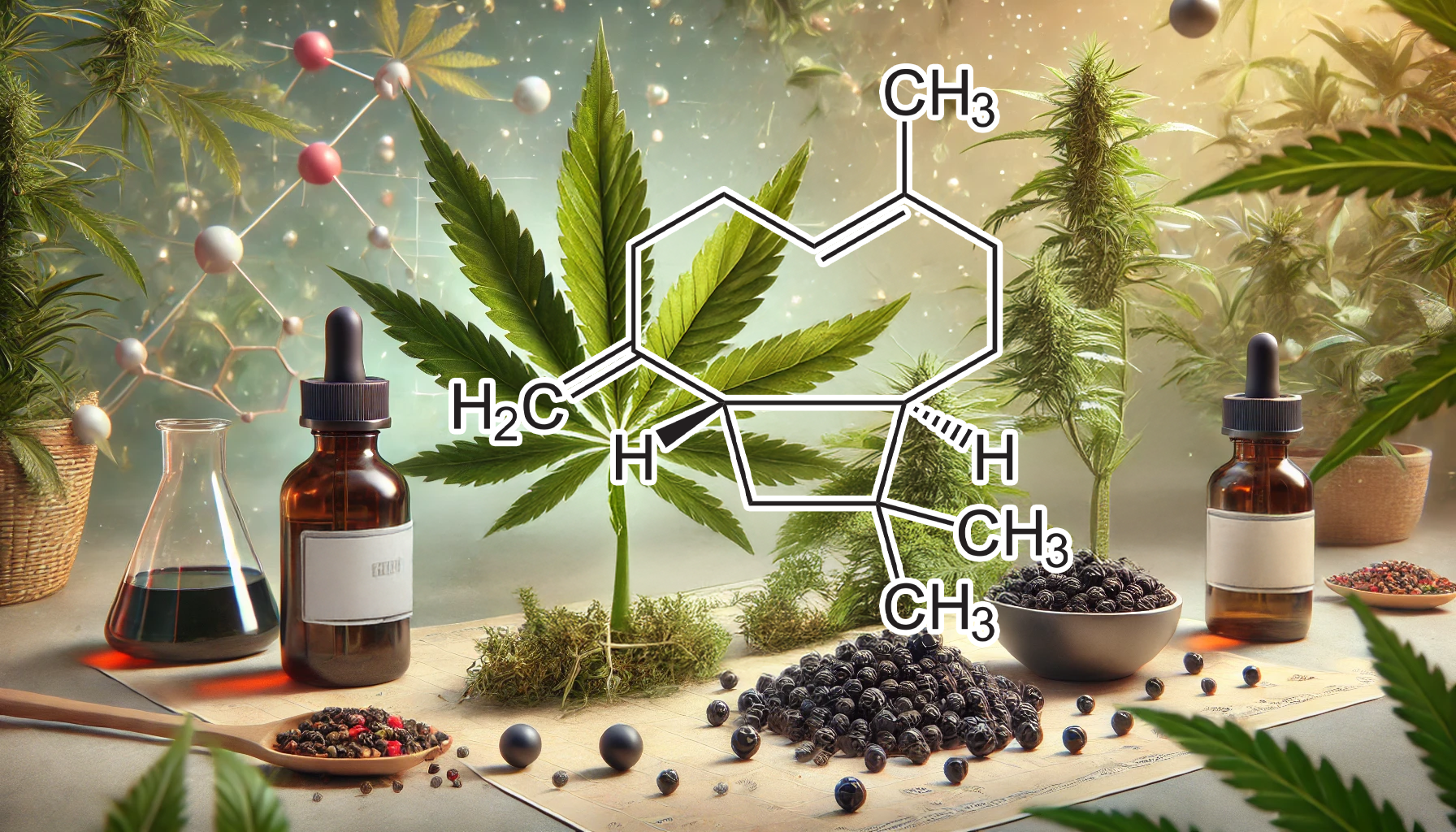Beta-Caryophyllene: A Unique Terpene with Medicinal Potential

What is Beta-Caryophyllene?
Beta-Caryophyllene is a terpene found in numerous plants, including cannabis, black pepper, oregano, rosemary, cloves, and hops. It is characterized by its distinctive, spicy aroma, often associated with pepper and woody notes. What makes Beta-Caryophyllene particularly remarkable is its ability to interact directly with the human body's endocannabinoid system, potentially offering medical benefits.
Unique Properties of Beta-Caryophyllene
Beta-Caryophyllene is one of the few terpenes that can act as a functional cannabinoid. It binds specifically to the CB2 receptor of the endocannabinoid system, which is primarily found in immune cells and plays a crucial role in regulating inflammatory processes. Unlike THC, it does not affect the CB1 receptor and therefore does not produce psychoactive effects.
Which Cannabis Strains Contain Beta-Caryophyllene?
Beta-Caryophyllene is present in almost all cannabis strains in varying concentrations. In some strains, it can make up to 25% of the total terpenes. Typical strains with high Beta-Caryophyllene content include:
-
Gorilla Glue #4 (GG#4)
These strains are known for their spicy, earthy, and sometimes peppery aromas. Some also have a diesel-like scent associated with the high Beta-Caryophyllene content.
Medical Properties of Beta-Caryophyllene
Scientific studies suggest that Beta-Caryophyllene offers several health benefits. The most important include:
1. Anti-Inflammatory Effects
Beta-Caryophyllene may help reduce inflammation in the body. Research shows that it has neuroprotective properties and could possibly lower the risk of strokes. Additionally, it may alleviate inflammatory bowel diseases such as Crohn’s disease.
2. Antibacterial and Antimicrobial Properties
Beta-Caryophyllene could be a natural alternative to synthetic antibiotics. Studies indicate that it may be effective against harmful microorganisms such as Streptococcus pneumoniae, Haemophilus influenzae, and E. coli. It is already used in some oral care products to reduce bacterial plaque.
3. Positive Effects on Mood
Experiments with mice have shown that Beta-Caryophyllene may have anxiolytic and antidepressant properties. This suggests it could serve as a natural alternative to conventional, often addictive, sedatives and antidepressants.
4. Support in Osteoporosis Treatment
Studies suggest that Beta-Caryophyllene may help prevent and treat osteoporosis. It could slow down bone density loss and thus reduce the risk of fractures.
5. Potential Anti-Cancer Properties
Beta-Caryophyllene is being researched for its potential ability to inhibit the growth of certain cancer cells. The exact mechanisms are not yet fully understood, but initial findings are promising.
6. Possible Aid in Multiple Sclerosis
Beta-Caryophyllene may help reduce inflammation associated with multiple sclerosis. Studies on animal models indicate that it may have neuroprotective effects.
Industrial and Cosmetic Applications of Beta-Caryophyllene
Beta-Caryophyllene is not only studied for its medical benefits but also widely used in the cosmetic and food industries. In its isolated form, it appears as a clear, yellowish liquid and is often used as a fragrance in perfumes, shampoos, and skincare products. Additionally, it serves as a natural flavoring agent in food products.
Another innovative application is the use of Beta-Caryophyllene and its derivatives as a substitute for petroleum-based fuels. Due to its chemical properties and high energy density, it could be a more sustainable alternative in fuel production.
Conclusion
Beta-Caryophyllene is a fascinating terpene with a wide range of applications. Its ability to interact directly with the endocannabinoid system makes it unique among terpenes. From its potential anti-inflammatory effects to antibacterial properties and benefits for mental health and cancer research, this terpene offers numerous promising perspectives. It is also a crucial ingredient in the cosmetic and food industries.
With the growing interest in natural alternatives to synthetic drugs and chemical products, Beta-Caryophyllene is set to play an increasingly important role in the future. Those looking to harness its health benefits should seek out cannabis strains with high levels of this terpene.
© 2024 - 2025 Cannadusa. Powered by Medusa Engineering GmbH
• Impressum • AGB • Datenschutz • Compliance



